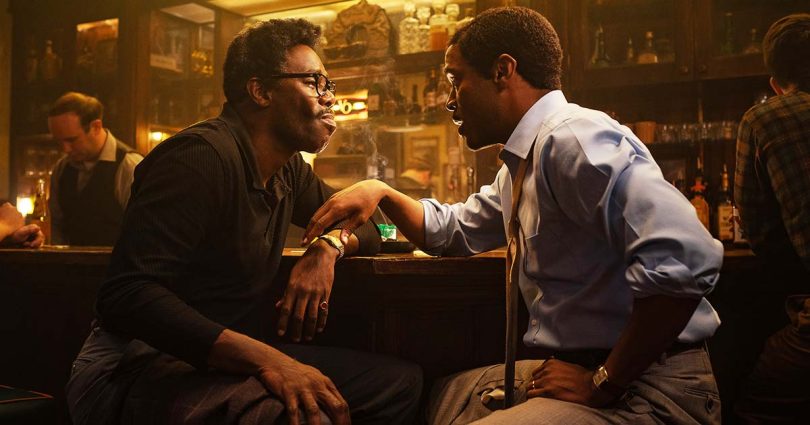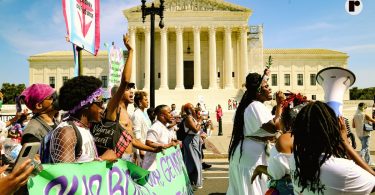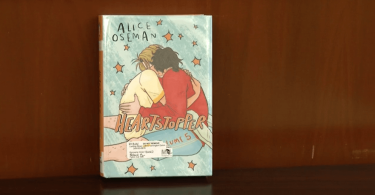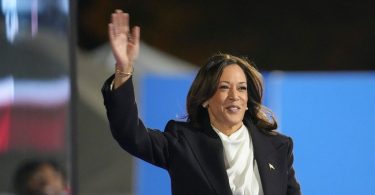Colman Domingo and Johnny Ramey in Netflix’s Rustin, which GLAAD applauded for its portrayal of the often-overlooked gay American civil rights leader, Bayard Rustin (Photo: David Lee/NETFLIX)
GLAAD’s 12th Annual Studio Responsibility Index reveals that LGBTQ representation in major Hollywood films is not only stagnating but regressing.
According to the report, only 27.3% of films released by major studios in 2023 featured LGBTQ characters, a slight drop from the previous year’s record high of 28.5%.
The report also highlights a worrying lack of transgender characters, alongside a shift in the quantity and quality of LGBTQ roles.
LGBTQ Representation Declining in Major Films
Out of 256 films tracked by GLAAD across 10 major distributors, only 70 featured LGBTQ characters—a total of 170 characters, down by 122 from the previous year. While the overall number of LGBTQ characters has decreased, the number of lead roles has seen some improvement, with a notable increase in the racial diversity of LGBTQ characters.
In 2023, 46% of the LGBTQ characters were people of colour, up from 40% in 2022. Despite this, GLAAD found a significant disparity in representation for LGBTQ women, non-binary characters, and, especially, transgender people.
Megan Townsend, GLAAD’s Senior Director of Entertainment Research & Analysis, expressed concern over this drop: “This year’s study found a significant and concerning decrease in representation of transgender characters and stories, down from 12 titles to just two – and one of those films [Sony Pictures’ ¡Que Viva Mexico!] was blatantly transphobic.”
Transgender Representation at Crisis Levels
The representation of transgender characters has become a critical issue at a time when a record number of anti-transgender bills are being introduced in the United States. As Townsend noted, entertainment media plays a crucial role in shaping public perceptions of transgender people.
“We know that less than 30% of American adults personally know someone who is transgender, therefore they may be more susceptible to lies and misinformation spread by anti-transgender politicians,” she said. “But we also know that portrayals in media can have a positive influence on attitudes, making authentic storytelling all the more vital.”
Paul Mescal and Andrew Scott in Walt Disney Studios’ All of Us Strangers, which was recognised by GLAAD for its “thoughtful and nuanced” queer love story
Mixed Results on Studio Efforts
While transgender representation saw a steep decline, GLAAD noted some positive strides in other areas. An increase in the racial diversity of LGBTQ characters is one bright spot, with LGBTQ people of colour now making up nearly half of all LGBTQ characters in film. Bisexual representation also rose slightly, with 27% of LGBTQ-inclusive films featuring bisexual characters.
However, GLAAD’s studio ratings were less encouraging. Most of the major distributors received low grades for their LGBTQ representation. Only Amazon earned a “Good” rating, while most others—including A24, Sony, and Walt Disney Studios—were graded as “Insufficient,” and Warner Bros. Discovery was labelled as “Poor.”
Sarah Kate Ellis, President and CEO of GLAAD, emphasised that the lack of consistent investment in LGBTQ-inclusive storytelling could have real consequences for Hollywood’s bottom line.
“Major distributors must deepen investment and intention in storytelling efforts to retain the attention of growing young diverse audiences, who crave stories that reflect their experience and their values. If LGBTQ representation continues to decline in major releases, these companies will lose relevance with a crucial buying audience,” said Ellis.
Calls for More Authentic and Inclusive Stories
As Hollywood faces increasing pressure to remain relevant to younger and more diverse audiences, GLAAD warns that cutting back on LGBTQ representation is a shortsighted move.
Authentic portrayals of LGBTQ lives not only help foster understanding but are also vital in countering hate and misinformation, especially for communities like transgender people, who are under legislative attack.
The message from GLAAD is clear: the film industry must do more to champion LGBTQ inclusion, especially in an era where representation has the power to influence both cultural attitudes and the financial success of studios. The future of Hollywood—and its audiences—depends on it.
Post Views: 36







